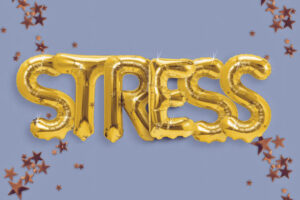
Dismissed for being hungover, drunk or falling asleep
Many workers have faced dismissal for calling in sick with a hangover or being drunk at work. There have also been plenty who have been dismissed for sleeping on the job. Depending on the circumstances, a dismissal for this type of behaviour can be seen as fair and reasonable by the Fair Work Commission. However, there are many variables that determine such an outcome. Sometimes, it can be ruled as unfair. In this article, we answer the question of whether you can be fairly dismissed for calling in sick hungover, drunk at work, or falling asleep on the job. To help answer this question, we share a number of Fair Work Commission cases to show how it typically rules on such cases.
Can you be dismissed for being drunk at work?
Before we answer this question, it’s important to first understand what serious misconduct is. The Fair Work Commission defines serious misconduct as behaviour that meets one of the following criteria:
- Intentional behaviour that goes against the terms of the employment contract.
- Poses a significant and immediate risk to the health and safety of individuals.
- Could harm the employer’s reputation, viability or profitability.
Serious misconduct is generally a valid reason to summarily dismiss an employee. This means that the employee is dismissed without notice. Being drunk at work is considered by the Fair Work Commission as one of the types of behaviour that can constitute serious misconduct. Other types of behaviour that can constitute serious misconduct include sexual harassment, assault, fraud or theft.
But while being drunk at work can lead to a summary dismissal, the dismissal can be considered harsh if it was a disproportionate response to the misconduct. Moreover, the employer must provide substantial evidence to prove the misconduct took place. It is the responsibility of the employer to ensure that the dismissal was justified and justifiable. If an employee is summarily dismissed for being intoxicated on the job, and it is deemed an excessive response or if the proof provided by the employer is inadequate, the employee can file an unfair dismissal claim with the Fair Work Commission.

Other factors to consider when dismissed for being drunk at work
There are additional factors to consider when determining whether a summary dismissal for being intoxicated on the job is justified and reasonable. For example, if the employer has a clear and strict policy of zero tolerance for drug or alcohol use, violating such a policy would likely warrant a summary dismissal.
Another scenario is when an employer issues a lawful and reasonable directive to an employee to abstain from alcohol consumption. In this case, a summary dismissal would likely be seen as reasonable by the Fair Work Commission. On the other hand, if the employer does not have an established alcohol policy in place, or if they typically encourage alcohol consumption with clients, these could be factors that could influence the decision and be taken into account as mitigating circumstances.
‘Drunk and disorderly’ financial adviser dismissed for being intoxicated at work
Let’s look at the unfair dismissal case Robert Campbell John Hunter v Wentworth Financial Services Pty Ltd (Mills+Brown) [2023]. This case provides a good example of how the Fair Work Commission decides if a dismissal is fair and reasonable when an employee is intoxicated at work.
Robert Hunter had been working as a financial advisor for Wentworth Financial Services for nine months when he turned up to work on 1 July 2022 in less than dashing form. According to his boss, 58-year-old Mr Hunter appeared “hung over” and still intoxicated. His boss noticed that he had “bloodshot, glossy looking eyes,” “lacked coordination,” and was slurring his speech.
Mr Hunter’s boss requested that he take a drug and alcohol test. But smelling the alcohol wafting off his person, Mr Hunter refused to take it. His boss repeated his request for Mr Hunter to take the test three times. But each time he flatly refused. His boss then told Mr Hunter to go home and, being a Friday, return to work on Monday at 10 AM.

Drunk financial advisor is dismissed
After a weekend of rest to shake off his hangover, Mr Hunter rocked up to work on Monday fresh as a daisy. But he was soon asked to explain his drunken state on the previous Friday. Mr Hunter denied that he had been drunk. And the reason why he smelt like alcohol? He told his boss that was because he had simply had a “big night on the booze the night before.”
This explanation didn’t pass muster with his employer, however. Mr Hunter was summarily dismissed for serious misconduct. Specifically, because his intoxication had caused a health and safety risk and violated his employment contract. Also, because he had caused a serious and imminent risk to the reputation of Wentworth Financial Services, and had failed to agree to a drug and alcohol test. Mr Hunter subsequently made an unfair dismissal claim with the Fair Work Commission.
Fair Work Commission rules on the unfair dismissal case
At his unfair dismissal hearing, Mr Hunter denied that he had been intoxicated at work. He also said that his boss had told him to go home before he could consider doing the drug and alcohol test. However, these claims fell on deaf ears. The Fair Work Commission found that Wentworth Financial Services had a valid reason to dismiss Mr Hunter. It stated that while there was “contending evidence” as to whether Mr Hunter “was intoxicated or not,” it found that he had indeed been intoxicated.
The Fair Work Commission came to this conclusion based on Mr Hunter statements. He had told the Fair Work Commission that he had “at least one or two drinks at lunch” and that he had “intoxicated himself” the previous night. The Fair Work Commission also pointed out that Mr Hunter could have provided financial advice to Wentworth Financial Services’ customers “while drunk.” He could have therefore “caused serious and imminent risk” to Wentworth Financial Services’ business “in terms of profitability and reputation had poor advice been given.”
But while there was a valid reason for Mr Hunter’s dismissal, was it harsh, unjust or unreasonable? The Fair Work Commission ruled that the dismissal did not meet that criteria, and was therefore fair. The Fair Work Commission came to this conclusion even after considering the “difficulties” Mr Hunter could have in finding a new job, given his age and an injury that prevented him from performing some roles.

Calling in sick with a hangover – Can you be dismissed?
Many of us have at one time thought of calling in sick due to our previous night’s revelries. Turning up to work with a hangover is unlikely to get you dismissed. And if you are, you will have a good unfair dismissal case to make at the Fair Work Commission. But what if you call in sick because you are hungover?
There have been a few unfair dismissal cases that show how the Fair Work Commission treats such a situation. One of these unfair dismissal cases is Chapman v Tassal Group Limited t/a Tassal Operations Pty Ltd [2017] FWC 4630.
“Um its ANZAC day … and I admit I have over indulged:” Factory worker dismissed for hangover sicky
Avril Chapman worked in Tassal Group’s factory where her duties included slicing and packaging fish. On Anzac Day in 2017, she had had a few too many drinks. And at 4:56pm decided to call her manager to tell her that she would not be in a state to come into work the next day. Ms Chapman’s manager didn’t answer, so she left a voicemail. She started off by saying that “its Avril one of your most loved pains in the a**se.” Ms Chapman then got down to brass tacks.
“Um its ANZAC day, my birthday, and I admit I have over indulged so I’m taking into account one of the golden rules be fit for work and I’m not going to be fit for work so I won’t be there. But um love ya, catch ya on the flip side,” she said in the voicemail. This voicemail didn’t go down well with one of Tassal Group’s senior managers, who considered Ms Chapman’s behaviour as constituting misconduct. And when she returned to work just over a day later, Ms Chapman was stood down from her duties.
Asked to explain her conduct, Ms Chapman emailed the manager saying that “I did not deliberately” get so drunk so as to impair her ability to work the next day. In an attempt to justify her actions, she stated that “It was my BIRTHDAY, and friends dropped by unannounced.” She also said that as the soiree continued, she realized “it was going to be a long night.” Ms Chapman affirmed that “I acted responsibly and respectfully” by calling her manager to say she wouldn’t be at work the next day.
Employee is dismissed for serious misconduct
Ms Chapman’s explanation for her actions didn’t pass muster with Tassal Group. The company regarded her emails as failing to accept the wrongdoing of her behaviour. As such, she was summarily dismissed for serious misconduct. Tassal Group came to this decision as Mr Chapman had about six months earlier breached the company’s code of conduct. This was because she had called her manager and left a voicemail at 8.33pm saying the following:
“Hello, it’s Avril, um … I won’t be at work today. I am non compos mentis, which means I’m f***in’ s***faced. Just found out my brother’s got advanced lung cancer and I’m a bit upset about it all yeah. Sorry.”
Ms Chapman received a warning for her foul language, but not for the fact that she was taking sick leave due to intoxication the night before.

“Took a sicky:” Fair Work Commission rules on the unfair dismissal case
At Ms Chapman’s unfair dismissal hearing, the Fair Work Commission found that her overindulgence in alcohol meant that she wasn’t able to fulfil her obligations the next day. And that there was no reasonable justification for her overindulgence. The Fair Work Commission also dismissed Ms Chapman’s argument that her dismissal was unfair because her misconduct took place outside of work hours. It found that her out of hours conduct was not compatible with her responsibilities as a Tassal Group employee.
The Fair Work Commission said that Ms Chapman “took a sicky” due to her voluntary actions. And that she had made things worse for herself by stating that she “could have gone to bed early and been fit for work the next day.” The Fair Work Commission therefore found that there was a valid reason for Ms Chapman’s dismissal.
It next considered whether it was harsh, unjust or unreasonable. On this point, the Fair Work Commission found that Tassal Group could not use Ms Chapman’s earlier conduct to dismiss her. This was because that situation was caused by her finding out that a relative was seriously ill. And that the warning given to her at that time was for her foul language, not being intoxicated and taking sick leave. The Fair Work Commission also took into account that Ms Chapman had for five years had an unblemished record at Tassal Group. Ultimately, it decided that her dismissal was harsh and therefore unfair. Tassal Group was ordered to pay Ms Chapman $8,229 for lost wages.

Can you be dismissed for sleeping on the job?
We’ve all been tired at work at one time or another. But most of us certainly haven’t fallen asleep on the job. Simply being tired is unlikely to lead to a fair dismissal. However, unfair dismissal cases brought before the Fair Work Commission have shown that an employee can be fairly dismissed for sleeping on the job. Particularly if sleeping on the job can lead to the endangerment of others.
In the case Mr Nigel Sclater v Transdev Harbour City Ferries Pty [2019], a Sydney ferry driver’s dismissal for sleeping on the job was ruled as fair. The driver had taken cough medicine but had failed to read the warning on the pack. This stated that may cause drowsiness and “if affected do not drive a vehicle or operate machinery.” While driving the ferry in Sydney harbour, the driver started to feel tired. So he sat down in the wheelhouse, closed his eyes, and fell asleep. He told the Fair Work Commission that he had been “absolutely unconscious” for about five minutes. And when he awoke, his manager was standing before him.
The driver argued to the Fair Work Commission that the incident was caused not only by his cough medicine. But also medication he was taking for a heart condition, and his underlying heart illness. But the Fair Work Commission was unmerciful. It stated that as the ferry’s master, the driver “must remain alert and in control of the vessel at all times, which he failed to do.” The Fair Work Commission therefore dismissed his unfair dismissal application.

Valid reason for truck driver’s dismissal, but ruled unfair due to violation of rights
In the case Brett Steed v Active Crane Hire Pty Ltd [2023] FWC 15 (25 January 2023), the Fair Work Commission ruled that there was a valid reason for the dismissal of a truck driver who fell asleep on the job. However, the dismissal was ruled as unfair because he had been denied procedural fairness. The driver’s manager had caught him nodding off in his truck while it was parked in the truck yard. And the very next day, he was summarily dismissed for serious misconduct. The truck driver argued to the Fair Work Commission that he didn’t fall asleep. But rather, had just been resting in the truck to avoid heavy rain.
The Fair Work Commission disagreed with this version of events, accepting that the truck driver had been asleep. And it stated that he had no reason to be resting or avoiding the downpour in his truck. It was found that doing so was a breach of his employer’s inclement weather procedures. The Fair Work Commission found that there was a valid reason for the dismissal. However, it was found that when the truck driver was told of the reason for his dismissal, he wasn’t given the opportunity to explain his side of the story. That is, he had been denied procedural fairness. For this reason, the dismissal was ruled as unfair.
Conclusion to: Dismissed for being hungover drunk or falling asleep
A Whole New Approach are the experts you need to make your unfair dismissal claim a success. But you need to act fast. You have only 21 days to file your claim, so contact us today.
We are Australia’s leading workplace mediators, having helped over 16,000 employees take action through the Fair Work Commission. Our service is no win, no fee, (or you can pay fees) and your first appointment with us is confidential and free. Workplace investigations or adverse action by the employer give us a call.
To arrange a private consultation, call us at 1800 333 666 and take the first step toward achieving a fair resolution.
Article similar to Dismissed for being hungover, drunk or falling asleep
Dismissal drugs alcohol in the workplace






